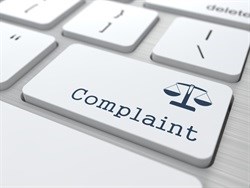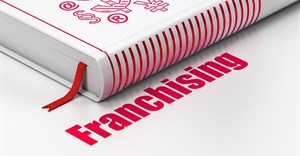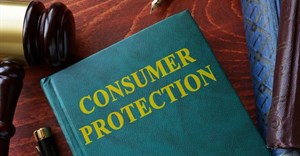
Trends from CPA complaints to consumer ombudsman

Consumers have complained about everything from pornographic downloads found on a computer after repair, to broken television screens, wedding gowns damaged by dry cleaners and incorrect prices advertised.
"We are finding that on the whole, suppliers are more accepting of their responsibilities under the Consumer Protection Act (CPA), while consumers are more aware of their rights," says Neville Melville, CGSO.
He says it is difficult to give effect to the CPA because it is a relatively new piece of legislation and there is a lack of decisions by the courts and tribunals to give guidance as to how it should be applied. The CPA also introduces international law concepts that are new to South Africa.
"Unlike the court process, there are no formal pleadings, hearings or argument by legal counsel and the ombudsman is guided not only by the law, but also by fairness. The informality of the ombudsman process, coupled with the speed and cost effectiveness of the process, plays an important role in our decisions."
Highlighted trends
- Till slips necessary for exchanges or refunds: In one case, a consumer requested a refund, despite not having a till slip as proof of purchase. "While the CPA makes no specific reference to till slips, the high levels of crime in South Africa are reasons justifying the requirement of a till slip when exchanging an item." He suggests that each case be treated on its merits - such as whether the brand of product is the store's own brand or whether it is sort of item that may have been shoplifted. "It's not desirable to lay down an inflexible industry standard as this is an issue of competitive service and some shops do require till slips, others will not give cash refund without one."
- Damage to goods: In a number of cases, consumers complained that they received damaged goods from suppliers. It was then up to the Ombudsman to decide whether the defect was existing or whether the consumer played a role in damaging the goods. "We cannot instruct the supplier to repair the goods free of charge if they have been altered contrary to the instructions or if the damage was due to customer neglect. Warranties will also be voided if the customer has altered the product in any way. This includes actions such as changing the plug on a DVD player, for example." If there is a dispute of fact between the customer and the supplier's version of events, the CGSO may call in an expert to give their opinion on the matter to try to assess when the damage occurred. "We need to look at all the evidence in support of each version and weigh this up against each other to establish which is correct, alternatively which is more probable." In a number of cases, reports showed the defects or damage were due to customer negligence, in which case they had to pay to have the damages repaired.
- Misleading offers or advertisements: One complainant saw an advert for a couch, selling at R1599, but when he went in store, was told that the actual price was R3700. The store said the lower advertised price was a printing error and refused to sell the furniture at that price. "We use the 'reasonable consumer' test in a case like this and found that the supplier was not bound to provide the couch at the incorrectly advertised price because of the large discrepancy with the actual price. However, in the interests of good customer relations, it was recommended that the supplier provide the complainant with a token of apology for the customer's wasted time and transport costs - such as a R100 cash voucher." In another case, a complainant went to the store and saw a coffee machine priced at R485. When the complainant wanted to buy it at the displayed price, the store refused to sell it to her, saying there was an error on the price tag and should have been R4850. "While the customer felt she was within her rights to pay the price she saw, the CPA also stipulates that where there are obvious errors, the retailer has the opportunity to inform the customer of the error and ensure that before a transaction is concluded that the right price is given to the consumer." In this case, the incorrect price displayed was found not to be binding on the supplier.
"It's all about balance and fairness and making sure everyone gets the best possible outcome," concludes Melville.
The compendium is available at www.cgso.org.za/page/documents.

















